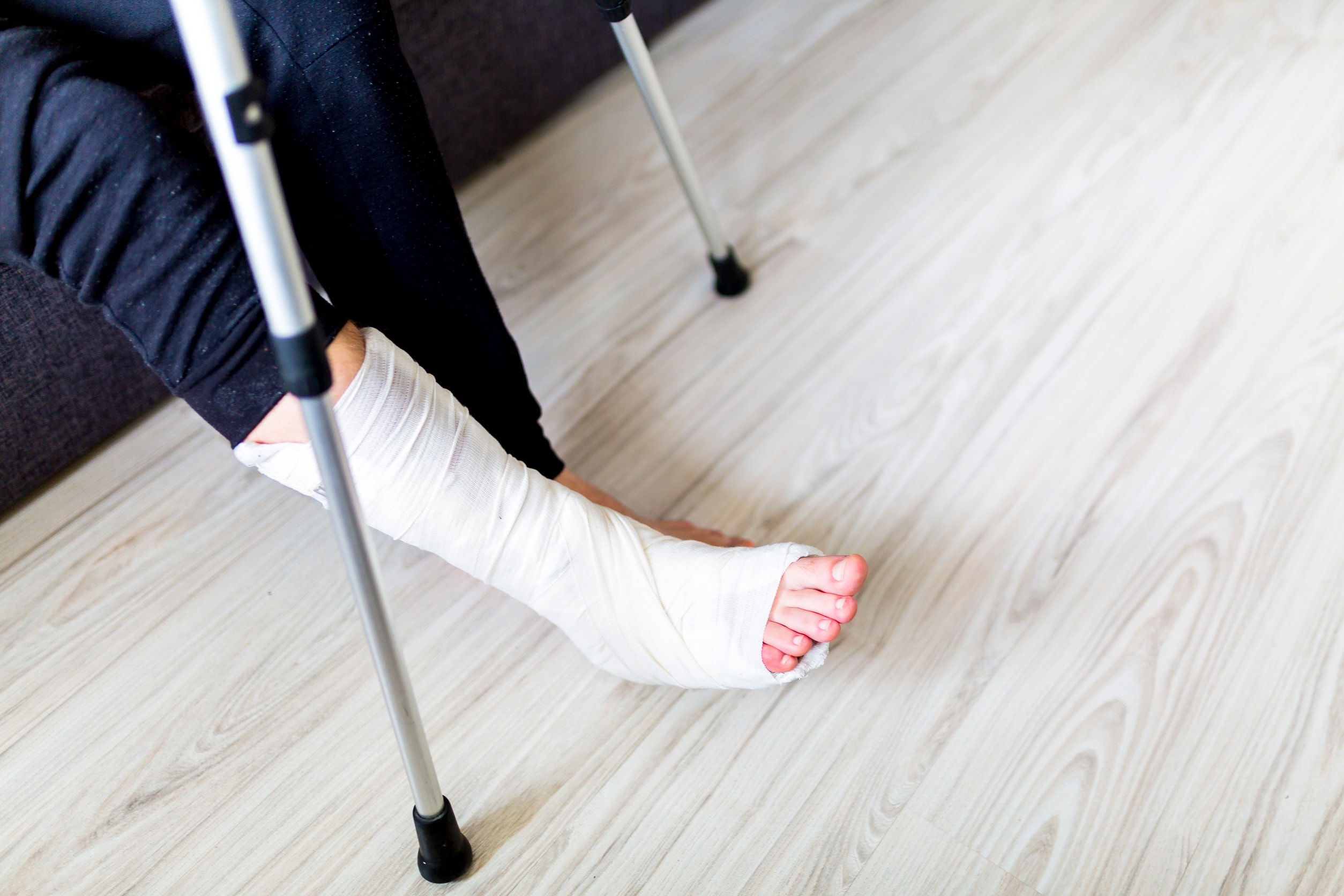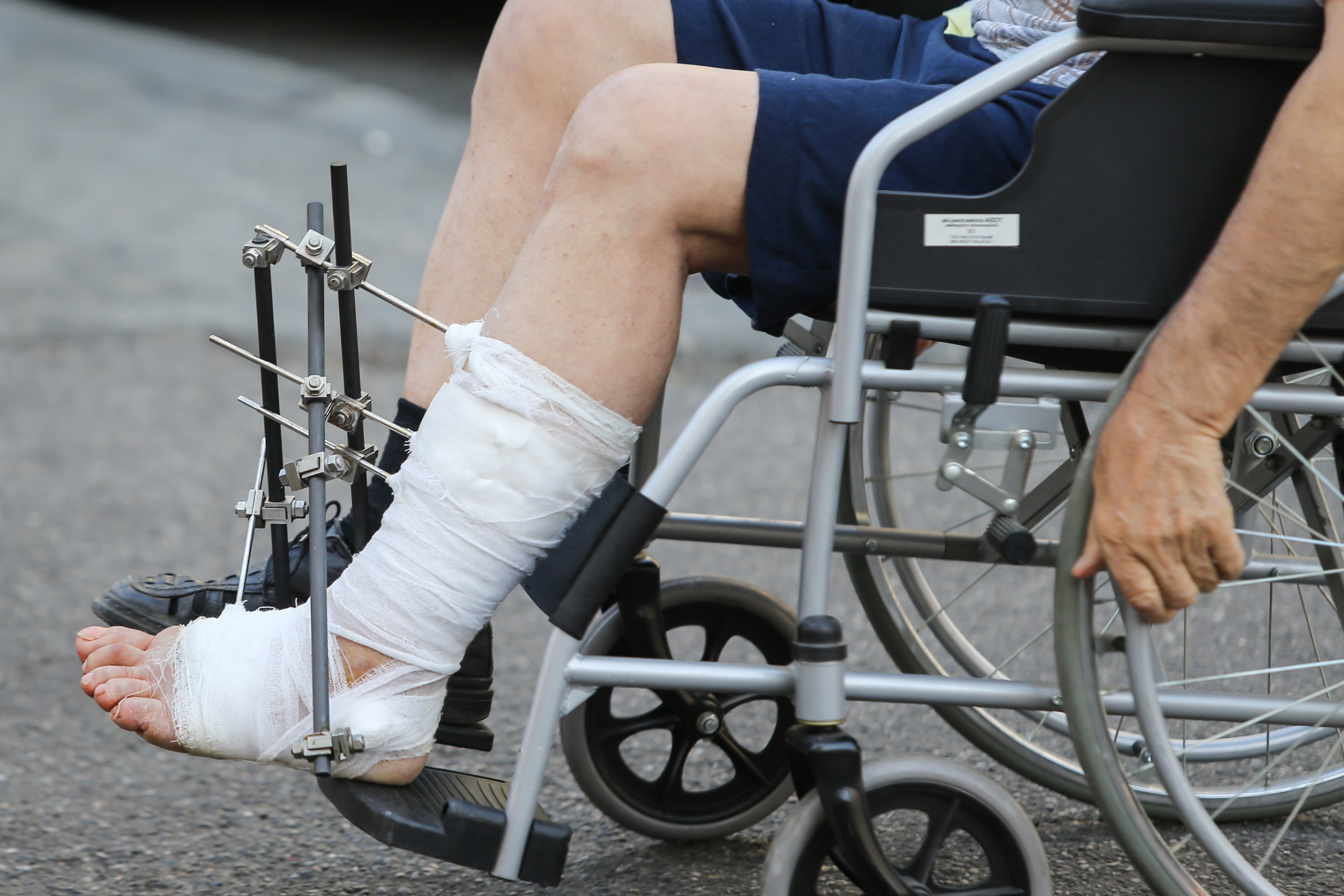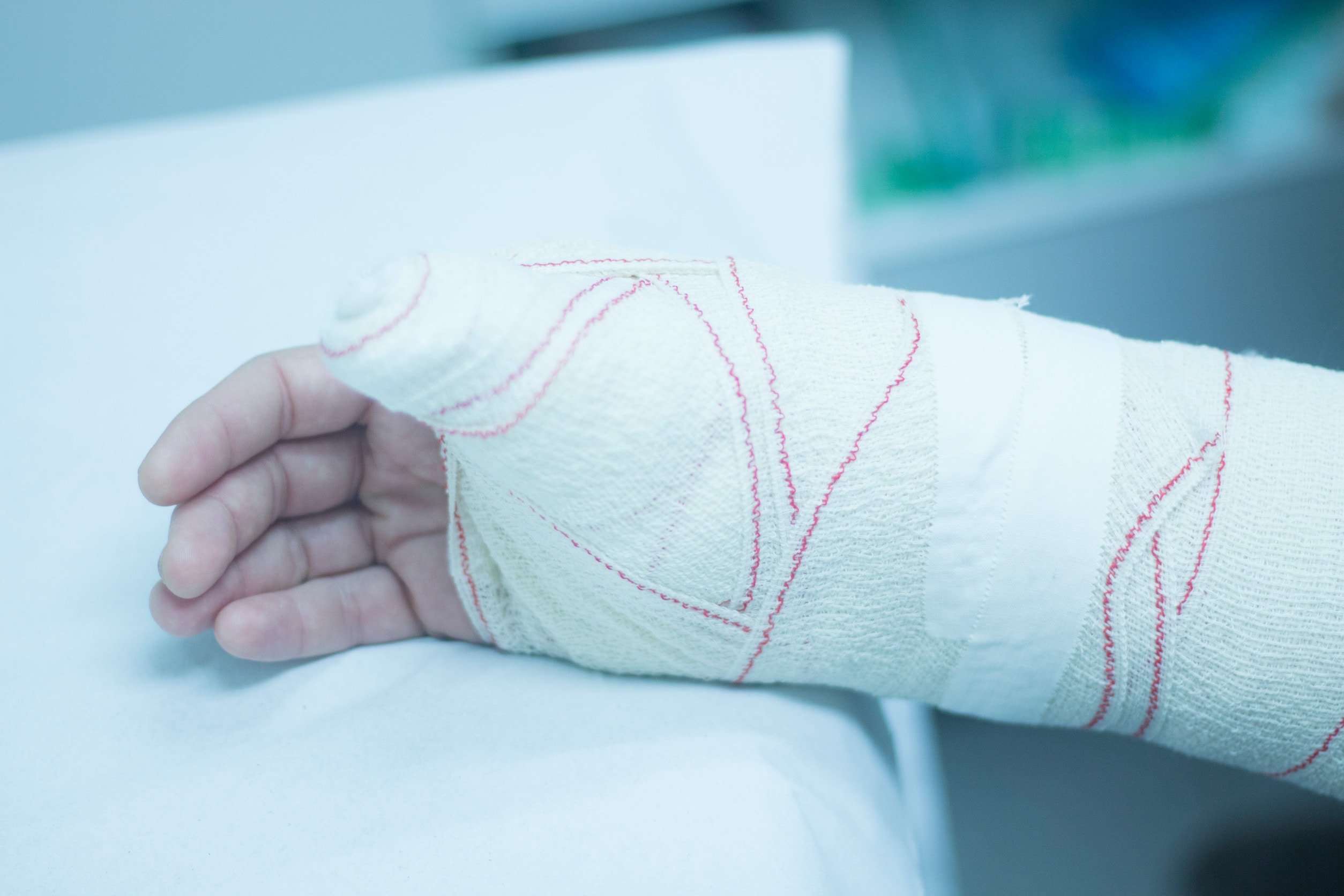How To Claim Broken Bone At Work Compensation
In this guide, we’ll tell you everything you need to know about claiming for a broken or fractured bone at work.
Key Takeaways In Broken Bone At Work Compensation Claims
- Your employer has a responsibility to keep you reasonably safe, and if you suffer a broken bone injury because they fail to do so, you may be eligible for compensation
- You need to prove that negligence occurred with evidence
- You have three years from the date of your accident to make a claim
- Broken bones can affect your physical health and your financial well-being
- A No Win No Fee solicitor from our panel could potentially help you make a claim
If you have any questions about making a claim, or if you’d like to speak to an advisor from our team, get in touch today by:
- Contacting us online
- Calling us on 020 3870 4868
- Using the live chat feature
Select A Section
- Can I Make A Broken Bone At Work Compensation Claim?
- Types Of Breaks And Fractures
- Common Causes Of Broken Bones In The Workplace
- How To Prove A Workplace Injury Claim
- Compensation In Broken Bone At Work Claims
- Is There A Time Limit When Claiming?
- How UKLaw Could Help You Claim Broken Bone At Work Compensation
- Learn More
Can I Make A Broken Bone At Work Compensation Claim?
So, when can you claim broken bone at work compensation? You can only form a valid accident at work claim if you can prove that negligence occurred. In workplace injury law, negligence occurs when:
- You are owed a duty of care
- This duty is breached
- You are harmed as a result
When you’re at work, your employer owes you a duty of care. To uphold this duty, they are required to take all reasonably practicable steps available to keep you safe. The steps your employer is required to take can change depending on what industry you work in, but they all need to comply with the Health and Safety at Work etc. Act 1974 (HASAWSA).
We’ll explore some examples of how a breached duty of care could cause a broken bone in the workplace later on in this guide.
If your employer breaches their duty of care, and this causes you to suffer a broken bone, then you may be able to claim compensation. Contact our team of advisors today to find out how a personal injury solicitor from our panel could help you.
Types Of Breaks And Fractures
When you break a bone, it could be a compound fracture or a simple fracture. Compound means that the broken bone is visible through the skin, and simple means the bone is broken, but the skin has not been pierced.
Other types of fracture include:
- Greenstick fractures, which means the break is incomplete, and only part of the bone is broken
- Transverse fractures, which means the break is in a straight line
- Spiral fractures, which means the break is spiralling around the bone
- Oblique fractures, which occur when the break is diagonal across the bone
- Compression fractures occur when the bone is crushed or flattened
- Segmental fractures, which means that the bone is broken in two places
- Comminuted fractures, which means that the bone is broken in three or more places
- Avulsion fractures, which occur when a bone is broken near a ligament or muscle, pulling the bone away
Symptoms Of A Broken Bone
According to the NHS, some common symptoms of a broken bone include:
- Swelling
- Pain
- Bruising
- Difficulty moving
- Stiffness
- The bone is sticking out from the skin
- The limb is sitting at a strange angle
If you think you could be entitled to claim broken bone at work compensation, contact our team of advisors today.
Common Causes Of Broken Bones In The Workplace
There are many ways that a breached duty of care could result in a successful broken bone claim. For example:
- There is water leaking from the ceiling onto the floor. Your employer is aware of this, but does not repair it, clean it up, or even put down a wet floor sign. This results in a slip and fall, causing a broken arm.
- Your colleague reports a piece of broken or defective equipment to your employer. Instead of having it repaired, your employer asks you to use it. This causes it to malfunction, resulting in a broken leg.
- It’s your employer’s responsibility to provide any training you might need to safely do your job. Your employer fails to do this before asking you to perform manual handling tasks, causing you to mishandle a heavy box which breaks your foot.
Our team can provide more information on broken bone at work compensation claims when you get in touch.
How To Prove A Workplace Injury Claim
When you claim broken bone compensation, it’s your responsibility to prove that your employer was at fault. To do this, you can collect evidence such as:
- CCTV footage: If your workplace is equipped with a CCTV system, you may be able to request footage of the accident and use this to support your claim.
- Accident book logs: Any working with ten or more employees needs to have an accident book, by law. Reporting your accident in this book creates a record, which means you can use it as evidence.
- Medical documents: Notes or records from your GP that detail your injuries, or an independent medical report, can all be used to help show how severe your injuries are.
- Witness statements: Your colleagues may have witnessed your accident. If they did, a professional can take their statements at a later date.
- Photographs: Taking pictures of either your injuries or of the accident site can be helpful, as this can be used as evidence later on in your claim.
Collecting evidence might seem difficult, but you don’t have to do it alone. One of the many benefits of working with an injury at work solicitor is that they can pursue different avenues of evidence to fully support your claim.
To find out how a solicitor from our expert panel could help you prove your broken bone at work compensation claim, we recommend that you contact one of our friendly advisors. Or, keep reading to learn about compensation in workplace injury claims.
Compensation In Broken Bone At Work Claims
When you make a successful broken bone at work compensation claim, you will receive general damages. This is one of two potential heads of claim, and it’s awarded to every successful claimant. Compensation under this heading covers the pain and suffering you’ve gone through as a result of the fracture, as well as the effect that it has had on your daily life.
For example, if you are a hobbyist piano player and you break your wrist, you may be unable to play. This is known as loss of amenity, and is included in your general damages compensation.
When professionals negotiate a compensation settlement for an accident at work claim, they might use the Judicial College Guidelines (JCG) for help. This is because the JCG contains a list of injuries, including bone breaks and fractures, and provides guideline compensation brackets for each one.
In the table below, you can find some examples of these brackets. Please keep in mind that these brackets are not guaranteed, and the actual amount of compensation that you could receive may vary. The top entry in this table is only illustrative and is not a JCG figure.
| Injury | Compensation Bracket |
|---|---|
| Multiple severe injuries and financial losses, including mobility aids, lost wages, and home adjustments. | Up to £1,000,000+ |
| Paraplegia | £267,340 to £346,890 |
| Severe Pelvis And Hip Injuries (i) | £95,680 to £159,770 |
| Severe (ii) Neck Injuries | £80,240 to £159,770 |
| Severe (iii) Neck Injuries | £55,500 to £68,330 |
| Severe Back Injuries (iii) | £47,320 to £85,100 |
| Leg Fractures From Which an Incomplete Recovery is Made or Serious Soft Tissue Injuries | £21,920 to £33,880 |
| Simple Fracture of a Femur With No Damage to Articular Surfaces | £11,120 to £17,180 |
| Simple Fractures of the Forearm | £8,060 to £23,430 |
| Wrist Injuries (e) | In the region of £9,070 |
What Are Special Damages?
Special damages address the financial impacts of your injuries. Breaking a bone can cause a lot of out-of-pocket expenses, including:
- Mobility aids, like crutches or a wheelchair
- Physical therapy and rehabilitation
- Lost earnings due to being unable to work
- Extra childcare costs
- Travel to and from hospital appointments
Special damages are the second head of compensation that you could claim, but unlike general damages, this heading is not awarded to every successful claimant. You need to be able to prove that the break or fracture has caused financial losses in order to receive special damages.
To learn more about broken bone at work compensation, get in touch with our team today.
Is There A Time Limit When Claiming?
Yes, you need to make sure you start proceedings within three years of suffering your injury. This time limit is set out by the Limitation Act 1980, and applies to most personal injury claims. However, there are some exceptions to this rule.
For example, if you do not have the needed mental capacity to claim for yourself, then the time limit does not apply. Instead, your claim can be made by a litigation friend, who can make the claim at any time.
Likewise, minors under the age of eighteen can’t make their own claims. Instead, a litigation friend can claim for them up until their eighteenth birthday. If no claim is made, then the three-year time limit starts on their eighteenth birthday.
To find out if you are within the time limit to make a broken bone at work compensation claim, contact our team today.
How UKLaw Could Help You Claim Broken Bone At Work Compensation
The claims process can seem daunting, especially if you haven’t had experience with the legal system before. However, UKLaw can help you get in touch with an expert workplace injury solicitor from our experienced panel, and they can help you through the claims process.
For example, a solicitor from our panel could help you:
- Gather evidence to prove your claim
- Negotiate a settlement
- Understand legal jargon
- Make sure your claim is filed on time
Since our panel of solicitors work on a No Win No Fee basis, you can access all of these services and more without paying any upfront solicitor fees. Our panel use a kind of No Win No Fee arrangement known as a Conditional Fee Agreement (CFA), which means you don’t need to pay solicitor fees at all if the claim fails.
If your case wins, then your accident at work solicitor will take a success fee from the compensation. This is only a small percentage of what you receive, and this percentage is legally capped.
Get In Touch With Our Team
If you’re ready to start your broken bone at work compensation claim, contact our team today. They can provide a free, no-strings-attached consultation, and can help you get in touch with an expert solicitor from our team.
Get started today by:
- Contacting us online
- Calling us on 020 3870 4868
- Using the live chat feature
Learn More
To learn more about making an accident at work claim:
- Learn how to claim for a forklift crash at work
- Get information on how to claim for an accident at work if you’re self-employed
- Find out if you’re entitled to full pay after suffering an injury at work
Or, for more helpful resources:
- Workplace health and safety basics from the Health and Safety Executive (HSE)
- Get information on Statutory Sick pay (SSP) from GOV.UK
- Learn about first aid from the NHS
Thank you for reading our guide on how to make a broken bone at work compensation claim.







